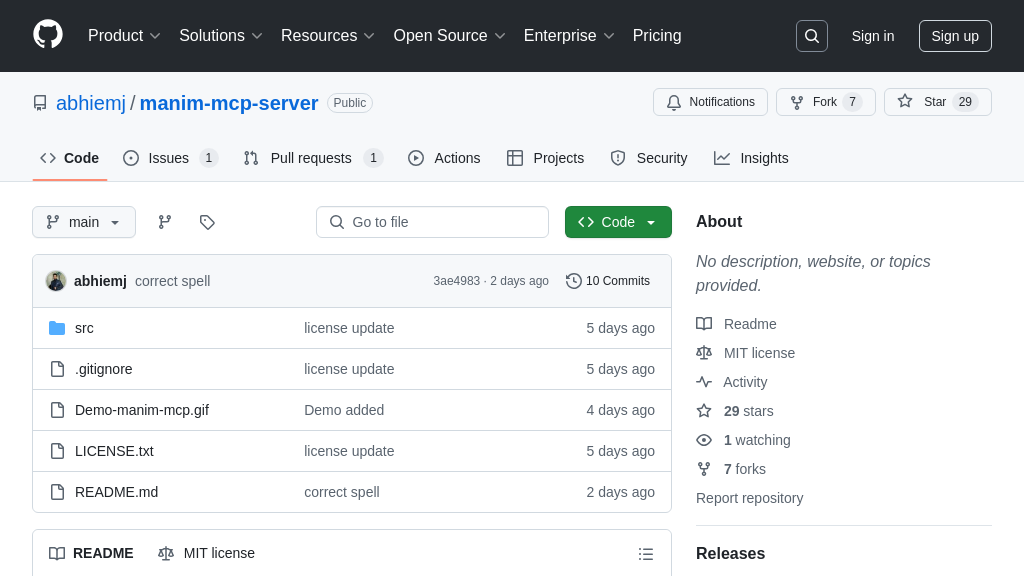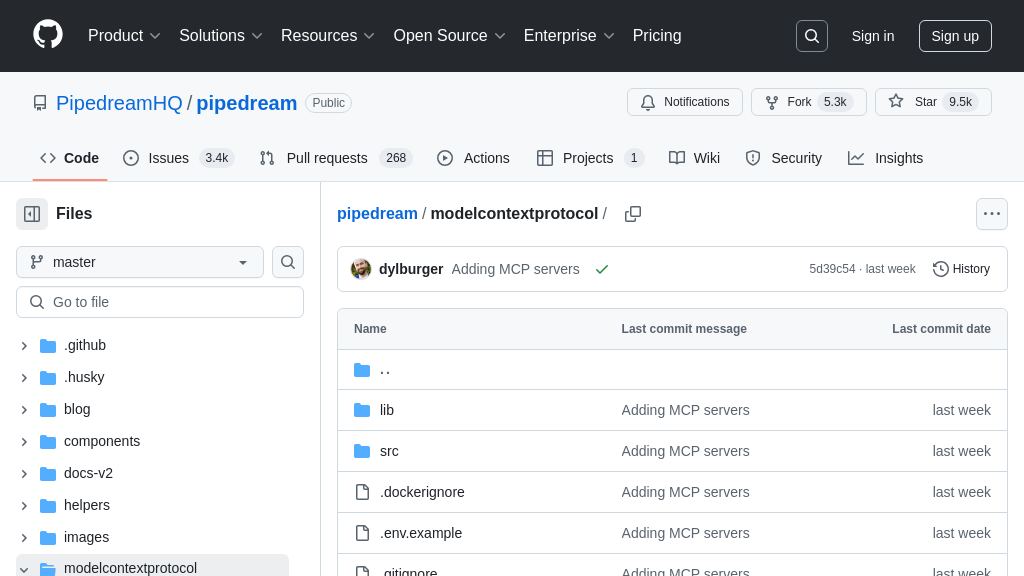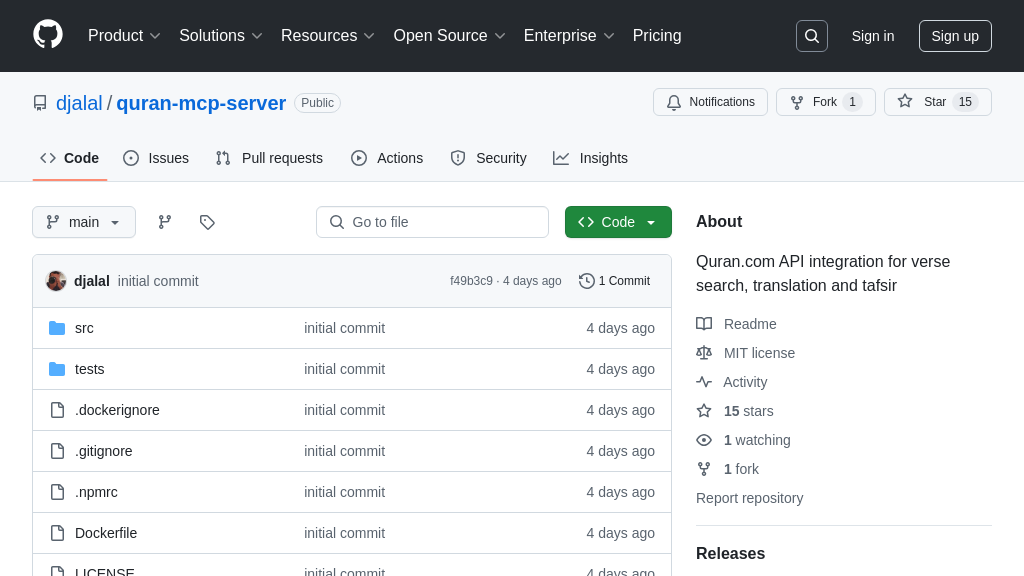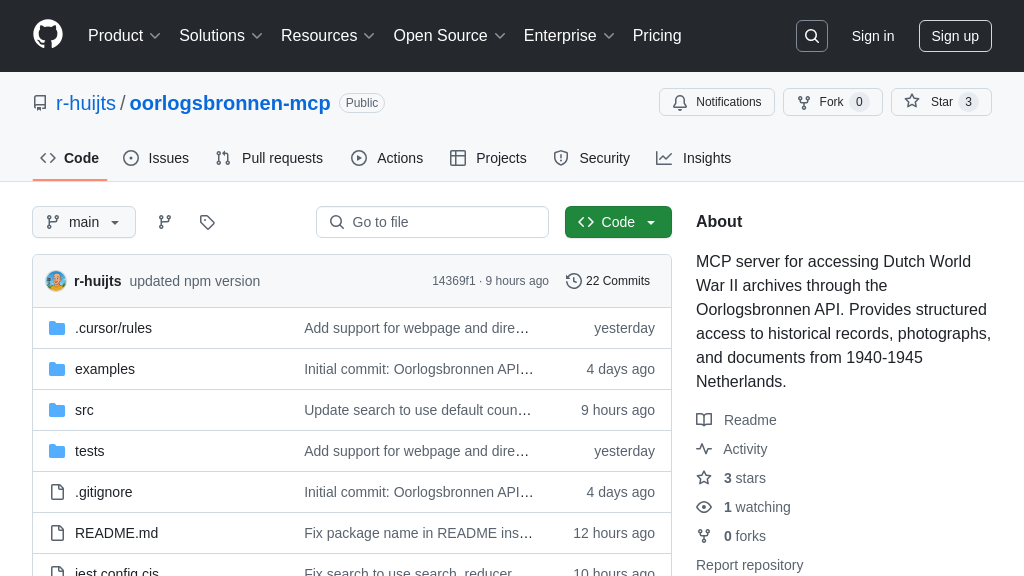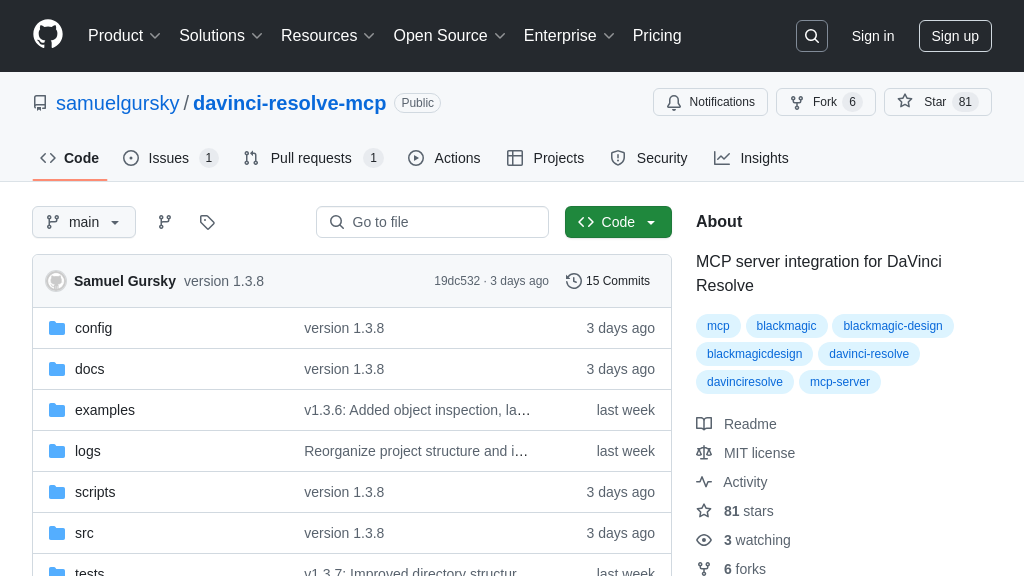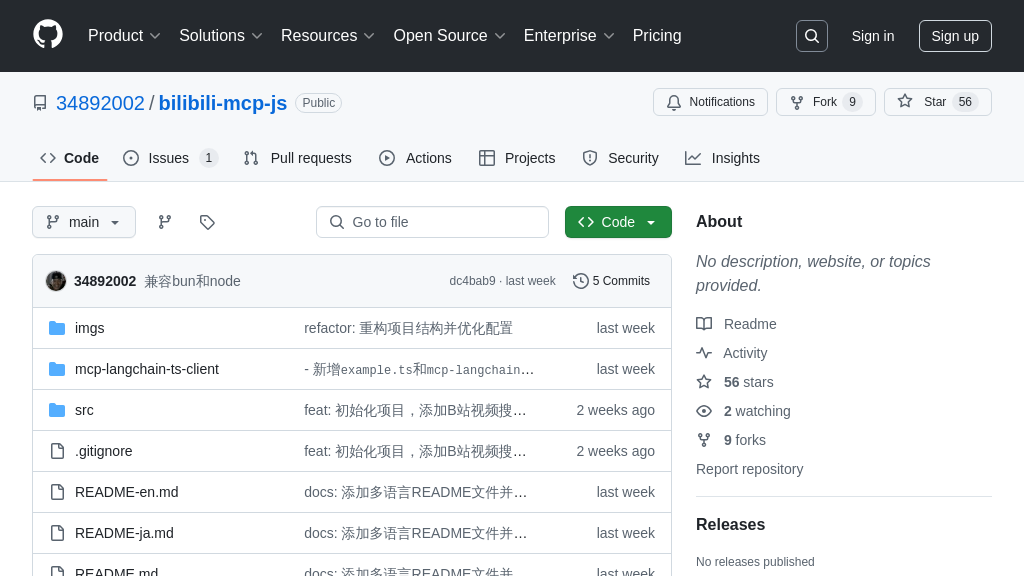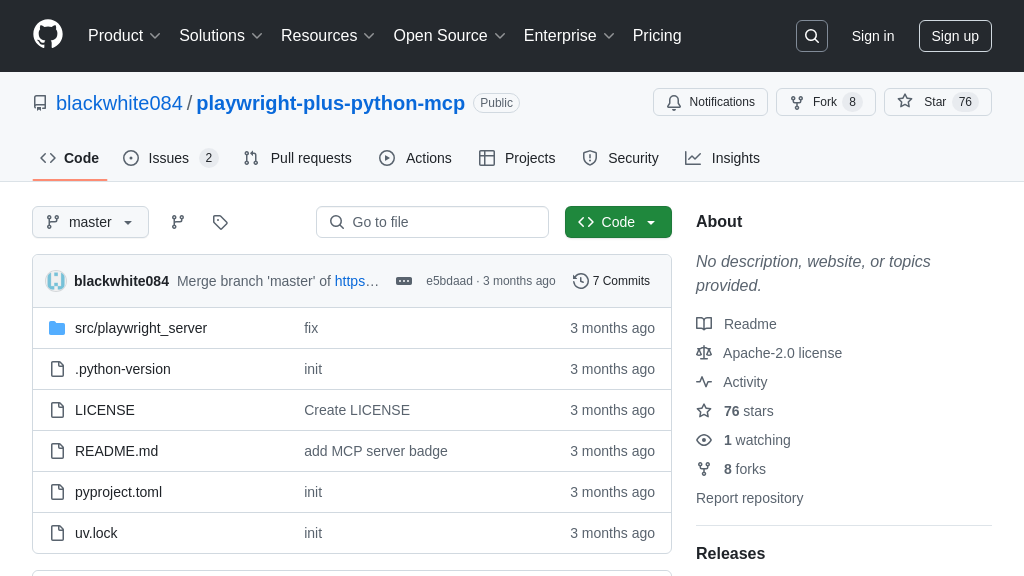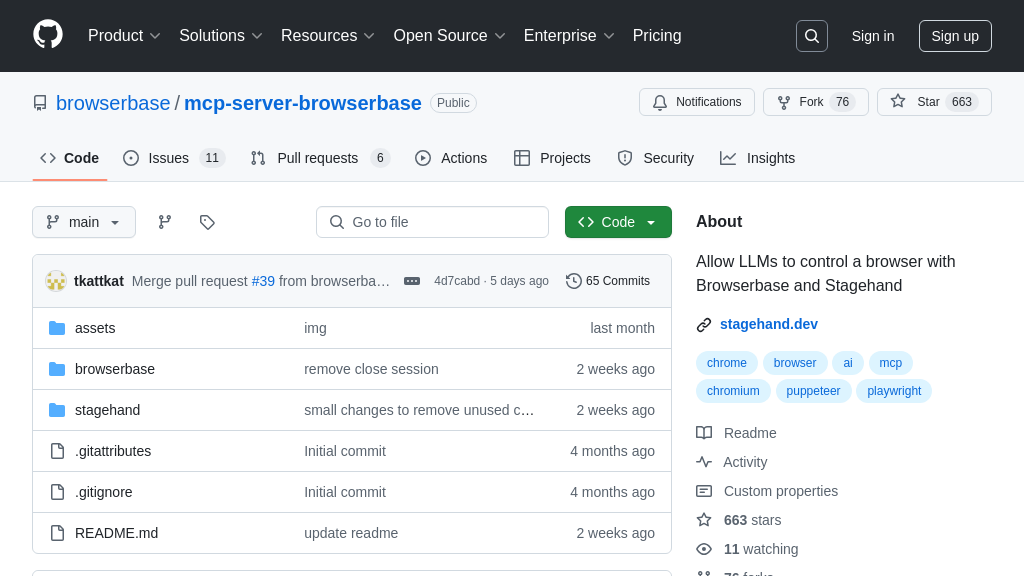github-enterprise-mcp
Integrate GitHub Enterprise with AI using github-enterprise-mcp, a Model Context Protocol (MCP) server for seamless data access.
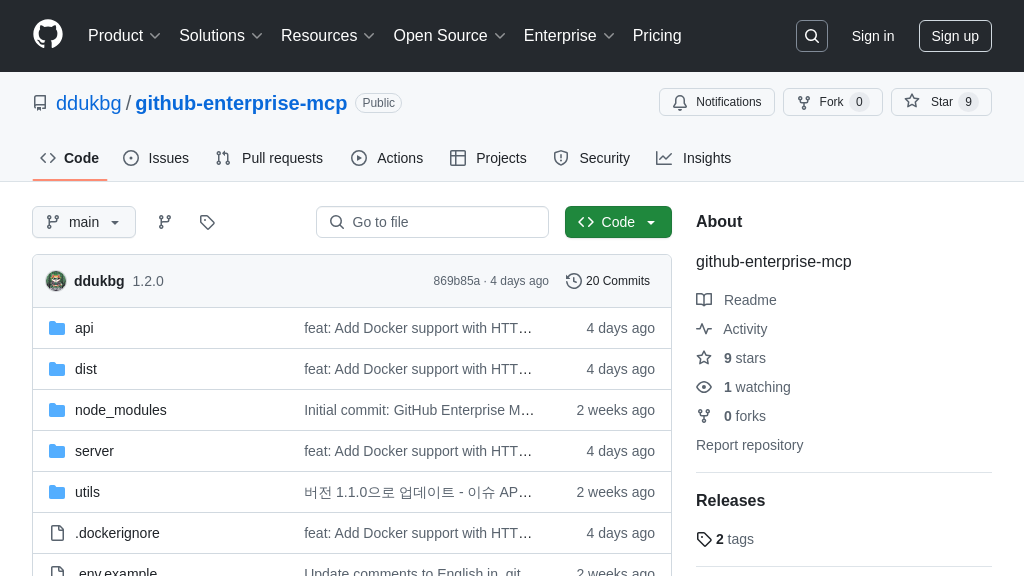
github-enterprise-mcp Solution Overview
GitHub Enterprise MCP Server is a vital tool in the MCP ecosystem, acting as a bridge between AI models and your GitHub Enterprise instance. As an MCP server, it provides AI-powered applications with secure, standardized access to your repository data, issues, and pull requests. This empowers developers to build intelligent tools that leverage the wealth of information within GitHub Enterprise, enhancing code understanding, automating workflows, and improving collaboration.
Key features include retrieving repository lists, accessing file contents, and managing issues directly from AI clients. By implementing the MCP standard, this server simplifies integration, reduces development overhead, and ensures consistent data access for AI models. It supports standard input/output and HTTP/SSE transport mechanisms, offering flexibility in deployment and integration. This solution unlocks the potential of AI to streamline development processes within your GitHub Enterprise environment.
github-enterprise-mcp Key Capabilities
Repository Access and Management
This feature allows AI models to seamlessly interact with GitHub repositories, providing access to a wealth of information and enabling automated management tasks. The AI can retrieve repository lists, detailed repository information, and branch structures. This capability is crucial for AI-driven code analysis, automated documentation generation, and intelligent code search. For example, an AI model could analyze a repository's commit history to identify potential security vulnerabilities or automatically generate API documentation based on the code. The system uses the GitHub Enterprise API, requiring a Personal Access Token (PAT) for authentication. This ensures secure access and allows for granular control over the permissions granted to the AI model.
Issue and Pull Request Management
This feature enables AI models to manage issues and pull requests within GitHub Enterprise. AI can list, create, update, and close issues, as well as review and merge pull requests. This is invaluable for automating project management tasks, such as triaging new issues, assigning them to appropriate developers, and identifying potential merge conflicts. For instance, an AI model could analyze the text of a new issue to automatically categorize it and assign it to the relevant team based on keywords and historical data. This feature leverages the GitHub Enterprise API, providing a programmatic interface for interacting with issues and pull requests.
User and Workflow Automation
This feature provides AI models with the ability to manage users and GitHub Actions workflows within a GitHub Enterprise instance. AI can list, create, update, delete, and suspend/unsuspend user accounts, as well as manage GitHub Actions workflows. This allows for automating user provisioning and deprovisioning, as well as optimizing CI/CD pipelines. For example, an AI model could automatically suspend user accounts that have been inactive for a certain period of time or optimize the execution order of tasks in a GitHub Actions workflow to reduce build times. This feature utilizes the GitHub Enterprise API, providing a comprehensive set of tools for managing users and workflows.
Enterprise Statistics Access
This feature allows AI models to access enterprise-level statistics from GitHub Enterprise. This includes data on repository usage, user activity, and overall system performance. This information can be used to identify trends, optimize resource allocation, and improve overall development processes. For example, an AI model could analyze repository usage data to identify underutilized repositories that could be archived or consolidated. Accessing enterprise statistics requires appropriate permissions within the GitHub Enterprise instance. This feature provides valuable insights for data-driven decision-making and continuous improvement.
